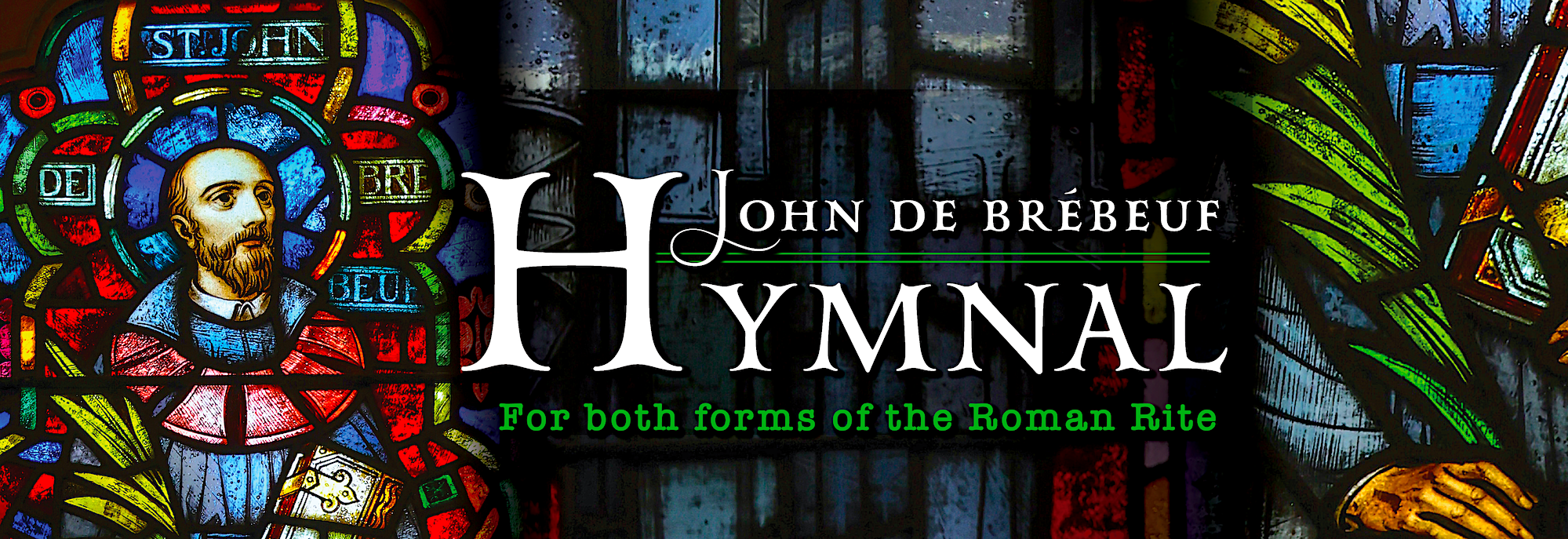
 INE ASSOCIATES of Corpus Christi Watershed were chosen to help produce the Brébeuf Hymnal, which (according to one of the main authors for the CHURCH MUSIC ASSOCIATION OF AMERICA) “has no parallel and not even any close competitor.” A member of the CATHOLIC ORGANIST GROUP wrote: “I have never encountered such a prolific and astoundingly interesting hymnal; I just read it for an hour and I’ve barely scratched the surface. I’m hanging on every word. It could easily stand as a primary text to a course, and is almost overkill as a pew aid.” The Brébeuf Hymnal contains three times as many hymns as its competitors. The Brébeuf series—sold exclusively by SOPHIA INSTITUTE PRESS—was designed by and for priests and musicians serving in real parishes across the globe.
INE ASSOCIATES of Corpus Christi Watershed were chosen to help produce the Brébeuf Hymnal, which (according to one of the main authors for the CHURCH MUSIC ASSOCIATION OF AMERICA) “has no parallel and not even any close competitor.” A member of the CATHOLIC ORGANIST GROUP wrote: “I have never encountered such a prolific and astoundingly interesting hymnal; I just read it for an hour and I’ve barely scratched the surface. I’m hanging on every word. It could easily stand as a primary text to a course, and is almost overkill as a pew aid.” The Brébeuf Hymnal contains three times as many hymns as its competitors. The Brébeuf series—sold exclusively by SOPHIA INSTITUTE PRESS—was designed by and for priests and musicians serving in real parishes across the globe.
* Pew Edition • Purchase the Pew Edition (932 pages)
—Contact SOPHIA INSTITUTE PRESS for bulk discount rates.
* CHORAL SUPPLEMENT • Purchase Link (1,192 pages)
—Must be used in conjunction with the pew edition.
* ORGAN ACCOMPANIMENT • Three Volumes (1,292 pages)
—Sold by SOPHIA INSTITUTE PRESS; Spiral-Bound; extremely opaque paper.

The Brébeuf Portal:
This powerful and innovative portal can be searched for numerous hymn items. For example, search the portal for “EUCHARIST” and tons of Eucharistic hymns come up—as this result shows. You can also search for all instances of a particular melody found in the Brébeuf Hymnal. For example, when you search for the melody called “MELCOMBE,” the portal instantly pulls up these results. For tunes used no more than once in the Brébeuf Hymnal, the results reflect that. For example, if you search for the beautiful tune called “WHITEHEAD,” you get just one result (because that melody is only used once in the Brébeuf Hymnal). If you search for the ancient Latin hymn “Ad Cenam Agni Providi,” the results are splendid. Searching by liturgical season is highly recommended. For example, if you search for “ADVENT,” you get excellent results.
Access any hymn with ease! Simply type digits into the URL address shown below. (For example, #802 would be: https://www.ccwatershed.org/brebeuf/page/802/.)


(Brébeuf Hymnal) • Sample Pages
You can immediately download fifty-seven sample pages completely free of charge. Included are pages from the choral supplement & organ accompaniment volumes. In some ways, viewing these sample pages is the quickest way to learn about this exciting new book.
(Brébeuf Hymnal) • Complete Indices
You can download the complete index for the Brébeuf Hymnal. Mrs. Veronica Moreno has also uploaded a handy “seasonal index” that can be downloaded here.
(Brébeuf Hymnal) • No More Stacked Lyrics!
Lyric “stacking” has a number of major disadvantages. (If you’re confused about what “lyric stacking” is click here.) For example, when the keyboard player simultaneously serves as CANTOR, it’s virtually impossible to play all the notes correctly while attempting to sing “stacked” lyrics—especially if the hymn is unfamiliar, once you get past the first few verses. The Brébeuf Hymnal has solved this problem once and for all as you can see.
(Brébeuf Hymnal) • Additional Questions?
We’ve compiled thirty-five articles about the Brébeuf Hymnal published in various media outlets to help answer all your questions. We have included third-party reviews.

“Are These Hymn Titles in Latin or English?”
A very important thing to grasp!
Natalia explains in this video:
![]()
Free Rehearsal Videos
More than 1,000 and counting!
Natalia describes them in this video:
![]()
Alphabetizing Hymnals
Does it make sense?
Natalia answers in this video:
![]()
Notating Every Verse?
The least we can do for singers!
Natalia explains in this video:
![]()
Why Name a Hymnal After Father Brébeuf?
Who Was This Saint?
Natalia explains in this video:
![]()
What Are Its Two Sections?
Truly crucial information!
Natalia explains in this video:
![]()
Stations of the Cross by Fulton J. Sheen?
Plus Cardinal Ratzinger & Saint Alphonsus Liguori.
Natalia explains in this video:
![]()
Common Hymn Melodies
(a.k.a. “Shared Tunes”)
Natalia explains in this video:
![]()

The Father Brébeuf Hymnal is distributed exclusively by SOPHIA INSTITUTE PRESS, and has been featured in their Annual Report. Corpus Christi Watershed is a 501(c)3 public charity. In the interest of full disclosure, any artists who contributed to the Brébeuf hymnal—texts, melodies, harmonizations, artwork, and so forth—receive standard royalties. Please contact Sophia Institute Press with questions about the Brébeuf Hymnal: liturgy.sophiainstitute.com. Beautiful and powerful images of Saint Jean de Brébeuf—one North America’s patron saints—can be downloaded by clicking here.
![]()
